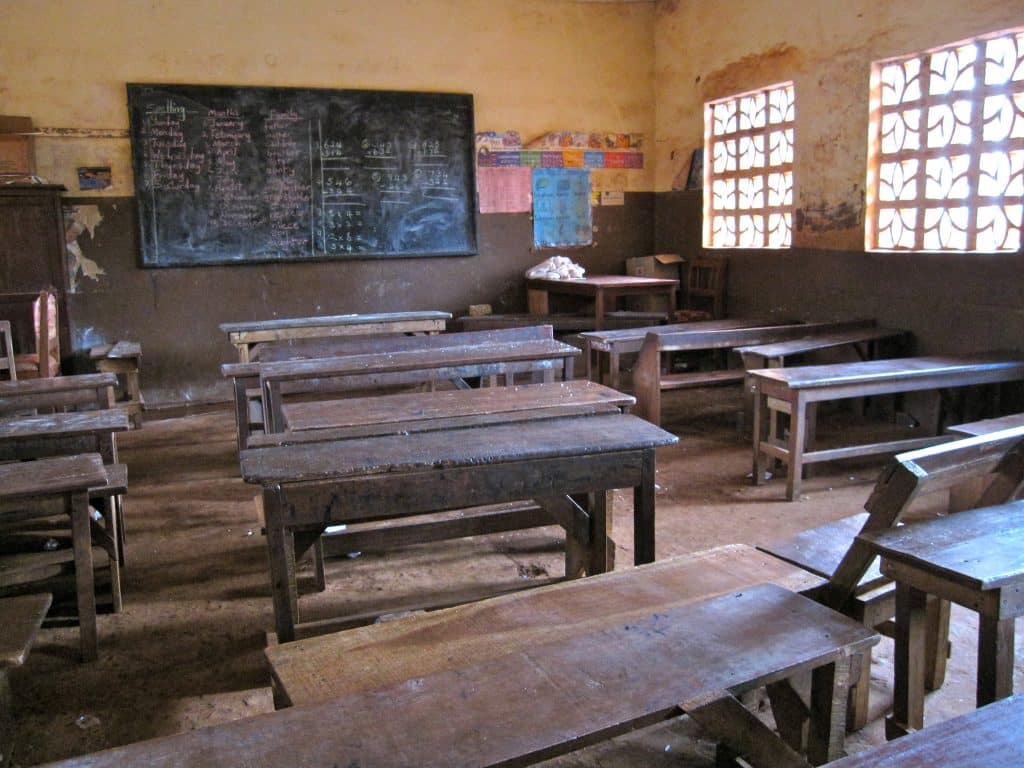Published
3 years agoon
By
GhMedia Hub
To achieve the goals of the Sustainable Development Goals (SDGs), especially Goal 4, which touches on education, every effort must be made to ensure the education of Ghanaian children are appropriately done, Rector of the United Nations University on Africa Professor Tshilidzi Marwala, has said.
All parties involved in the children’s education, including parents, community leaders, teachers, the government, and the political elite, were urged by Prof. Marwala to play their parts to the best of their abilities.
In an audio interview with Johnnie Hughes that was broadcast on the Sunrise program on 3FM on Thursday, May 25, he called the state of Ghana’s education funding “heartbreaking.” He asked the government to increase its efforts.
“It is genuinely upsetting, and we must take action to improve our educational system. I’ll return to personal accountability. Governments and the political class are obligated to support education, efficiently fund it, and ensure that teachers are present. There must be an end to the practice of instructors missing Mondays.
“We must make them responsible for the instruction of our children. However, for us to be able to address this SGD 4 issue, parents and community leaders must be alert to what is occurring in our communities and our schools.
The optimal ways to finance the achievement of SGDs, according to Prof. Marwal, must be urgently discussed by all parties.
He disclosed that although the Covid pandemic has hampered the SDGs’ achievement, the global economy’s structural makeup is also a problem hindering the efforts.
The SDGs include a deadline of 2030 for goal completion, giving stakeholders seven more years to complete all of the objectives.
When asked how the world was doing in terms of attempting to reach the goals, Prof. Marwala responded, “Not very good. We know that Ghana’s great son, Mr. Kofi Annan, established the SDGs. In 2015, the SDGs were unveiled. Only 12 to 15 percent of the SDGs were on pace, leaving most behind the target.
“Now that that is established, why? Covid-19 is undoubtedly one of the factors to blame, but the structure of the global economy is also crucial. What mechanism we may employ to finance the achievement of the SDGs is something we need to discuss at the table.
“It goes back to the issue of reforming the financial architecture, whether it be global, continental, or regional.”
The Sustainable Development Goals, or the Global Goals, are 17 interconnected goals meant to act as a “common blueprint for peace and prosperity for people and the planet, now and into the future.”
The 17 Sustainable Development Goals (SDGs) are no poverty; zero hunger; good health and wellbeing; quality education; gender equality; clean water and sanitation; affordable and clean energy; decent work and economic growth; industry, innovation, and infrastructure; reduced inequalities; sustainable cities and communities; responsible consumption and production; climate action; life below water; life on land; peace, justice, and strong institutions; and partnerships for the goals.
By placing sustainability at their core, the SDGs highlight how sustainable development’s environmental, social, and economic facets are interconnected.
Source: 3News
